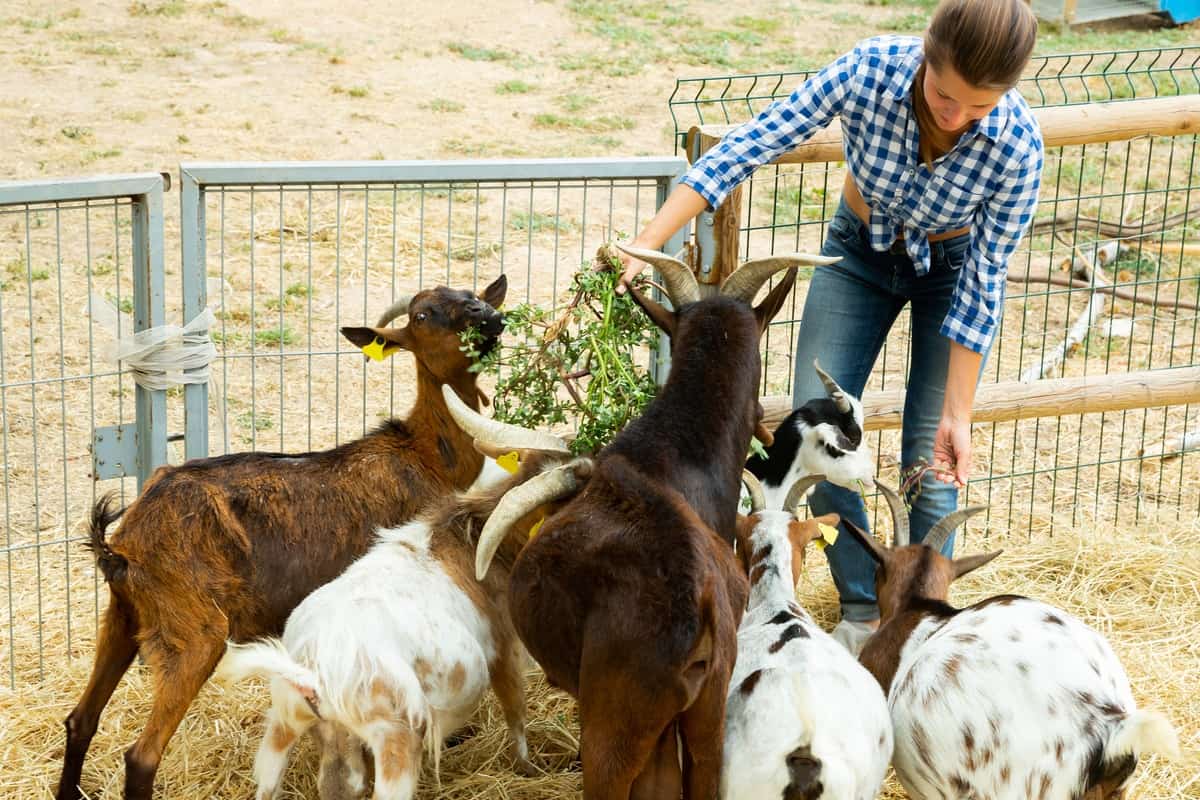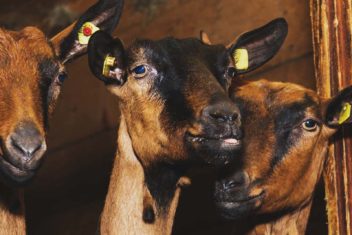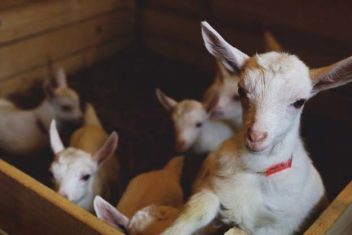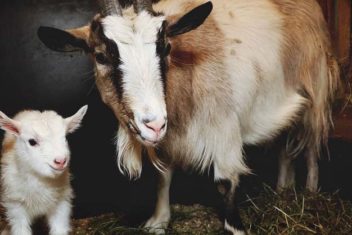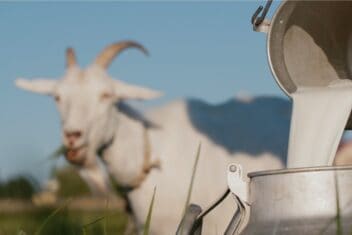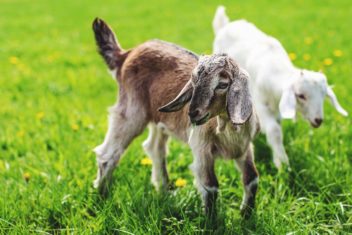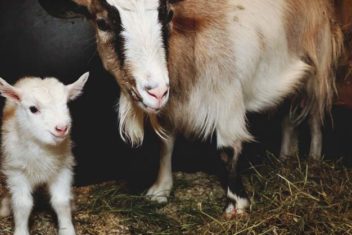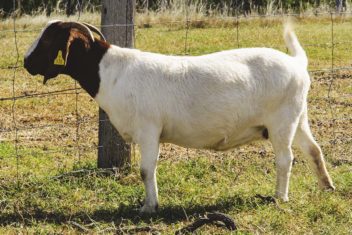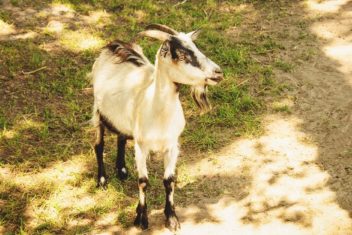Are you thinking about raising goats?
If so, you’ve made a wise choice. There are countless benefits to raising goats, but you mustn’t go into the situation blindly.
Although they aren’t the most difficult types of livestock you can raise, they do present a few unique challenges.
Educate yourself ahead of time – and you can avoid mishaps (hello, goats – goodbye laundry on the clothesline!) in the future.
Here are some of the common mistakes first-time goat owners make.
Benefits of Raising Goats
You probably don’t need to be told about all the reasons why goats are amazing. However, I think it’s a good idea to address the benefits of these quirky animals before diving into the potential challenges – I don’t want to scare you off, after all.
Goats are versatile little creatures, allowing you to produce your meat, milk, or fiber (or all three, if you choose!) right on your farm. Goat milk is easier to digest than cow’s milk and the meat has just as much protein as beef – with half the calories.
Plus, goats are nature’s lawnmowers. They eat all kinds of plants that we might consider weeds. You don’t need acres upon acres of quality pasture to feed these animals – they’ll happily eat that overgrown hedgerow!
When trained properly, goats can even act as companion species or pack animals! They’re fun to raise and serve as a wonderful introduction to farming, especially for kids who choose to raise them as 4H projects.
You can read more about all the reasons you should raise goats in this post.
Fortunately, the benefits of raising goats (for most people) far outweigh the work involved and the difficulties. That said, knowing what to expect ahead of time is key when it comes to avoiding disaster!
10 Common Mistakes Goat Owners Make
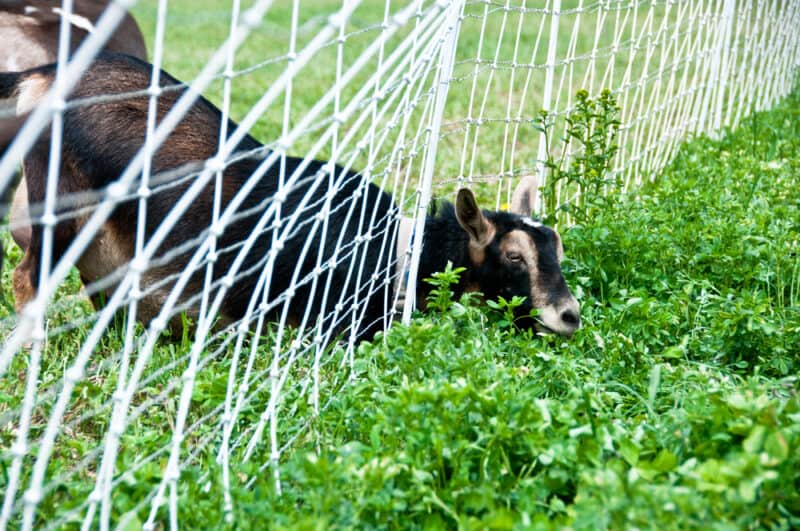
Let’s start by clearing things up – your goats probably aren’t going to eat the clothes you have hanging on the clothesline, at least not if you have plenty of other food available for them. That’s kind of a myth – but certainly a humorous one at that.
However, there are plenty of other ways that goats can wreak havoc on your homestead. Here are some of the most common mistakes goat owners might make – and how to both prevent and address them should they occur.
1. Lacking the Right Training
Educate yourself before you bring goats home. This is a major responsibility and you can’t just put them outside and expect them to do well.
At the very least, read some articles about raising goats before you bring them home. Even better, read a few books, watch some videos, and talk to a friend who raises goats. Goats require time, care, money, and knowledge to thrive – so get educated before you dive in.
2. Not Having Enough Space
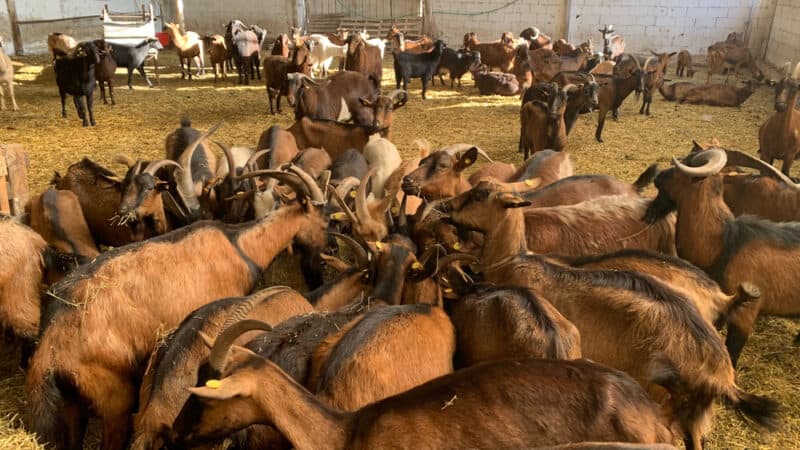
Goats need a lot of space to be healthy – and with that space comes added expense.
Don’t underestimate how much space you need. A single stanchion might work now for just 1 or 2 dairy goats, but you’ll likely find that you need much more. A single stall might work for a doe and her kids, but you really shouldn’t keep the buck right in there with them.
You should plan for at least 10-feet per goat of indoor space – the more, the better. Outdoors, you can plan to raise around 6-8 goats per acre.
Of course, the more space you can provide them, the better. Goats are extremely prone to parasite issues, and if you overcrowd your goats, parasites are going to become a major problem. Rotate your pastures and be sure to give your goats plenty of space.
3. Ignoring Mineral Needs
Another issue that many first-time goat owners make is ignoring their animals’ need for mineral supplementation. Mineral needs vary depending on what part of the country you are living in, but in general, you can buy a goat mineral supplement at your local feed store that should do the trick.
Don’t use a mineral supplement intended for other animals, like sheep. It might be deficient in certain minerals, like copper, which can lead to a variety of health problems in your goats.
4. Parasite Problems
Unfortunately, goats are quite prone to parasite problems. Both external and internal parasites can wreak havoc on your herd. Parasitism can cause symptoms like weight loss, diarrhea, a shaggy coat, depression, weakness, anemia, fever, coughing, and jaw swelling.
Treating parasitism is important – especially before it happens. Get your animals on a parasite prevention plan, whether that’s with regular deworming using chemical medications or some other form of natural treatment. Use a variety of deworming drugs, if you choose to go that route, to make sure drug resistance does not develop.
5. Inadequate Fencing
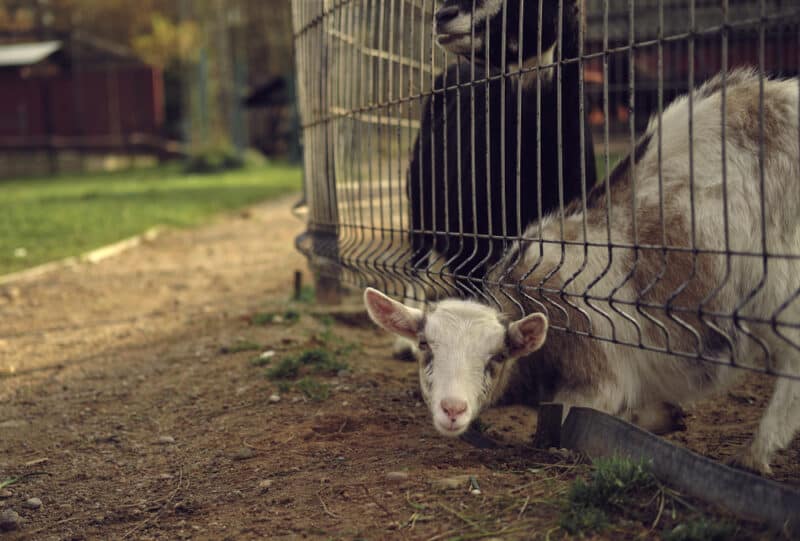
Of all the farm animals you can raise, goats are perhaps the slyest when it comes to fencing.
You will need to build a tall fence – ideally one that is at least 4-feet tall. This will prevent your goats from jumping over it and also prevent predators from getting inside.
6. Show Goats vs. Meat Goats
Another common mistake goat owners make is assuming that all breeds are alike. However, you won’t raise show goats exactly as you will raise meat goats or exactly as you will raise fiber or dairy goats.
For example, if you choose to raise show goats, you are going to need to pay much closer attention to things like grooming and deworming than if you were raising goats for any other purpose.
7. Upset Rumen
Upset rumen is a common issue that affects goats – but if you aren’t aware of what it looks like or even of its existence, you won’t be able to address it.
This disease is similar to indigestion. It is caused by eating too much grain. Goats don’t have to have grain, so foregoing the grain bin entirely is a good way to prevent this problem. Moldy hay can cause similar problems.
If this disease presents itself, it will likely cause your goat to not eat as much or to become inactive. You’ll need to give milk of magnesia several times a day to get the healthy bacteria back up and running in your goat’s digestive tract, too.
8. Buying Sick Goats
Don’t impulse buy. Make sure you know what to look for when you’re shopping for goats.
A lot of people choose to buy goats at auction, but this is rarely a wise choice. Although you can sometimes get an okay price on goats at an auction, it is very difficult to tell just by looking at them whether they have any underlying health issues.
What’s worse is that many people take their goats to auction simply to get them out of the herd – so you’ll just be buying their problems.
Instead, buy from a breeder. When you do, inspect the goats carefully and ask about the health of the herd, the breeding history, and any vaccinations the animals have received.
9. Neglecting Routine Management and Care
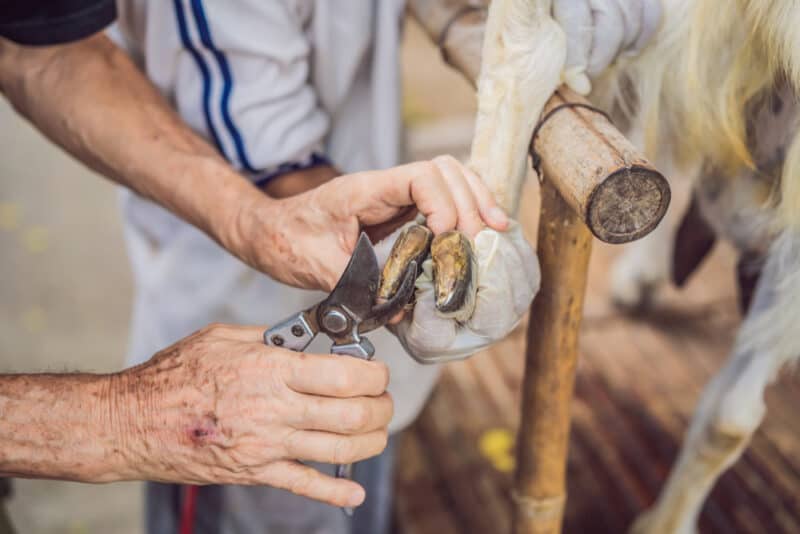
Get yourself on a schedule when it comes to caring for your goats. They need regular hoof trimming, deworming, grooming, and other medical care (in addition to being fed and watered two times per day).
You don’t get to go on vacation if you have goats – your animals need you every day.
Neglecting routine care will only add to your workload and put your goats at risk of illness, injury, or infection.
10. Not Considering Behavioral Differences During Breeding
Like all other animals, goats get a little…crazy…when it’s time to breed.
Bucks, in particular, can be quite difficult to handle. They aren’t the best pets – and they can be stinky! You should only get a buck if you know for sure that you want to breed your goats.
Know, too, that getting a buck for your farm isn’t the only option, even if you want to have kids. You can always lease a buck from a breeder or have what’s called a “driveway” breeding in which the buck just drops by to breed the doe.
That way, you won’t have to worry about the “aromatic appeal” of bucks – or any head butting or other types of aggression.
How to Avoid Common Goat Problems
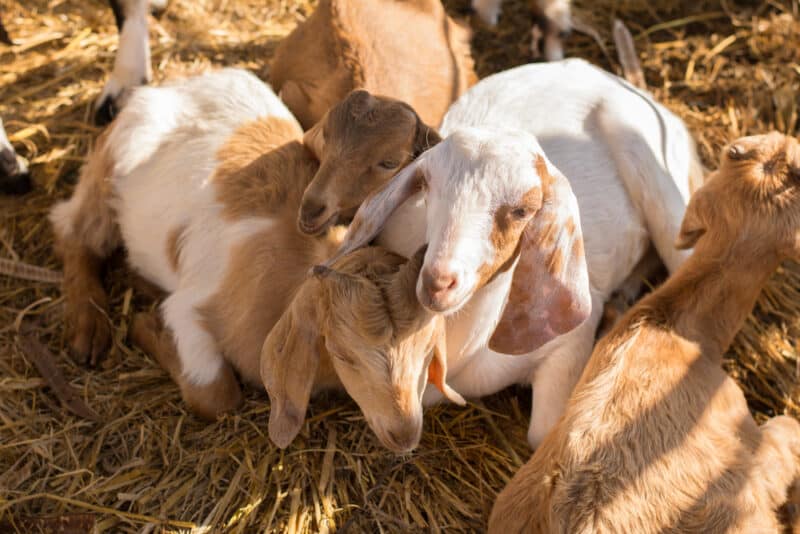
Did you know that the average person only owns goats for around 5 years?
That sobering statistic is due largely to the fact that very few people go into the experience with the full understanding and knowledge of what goats require.
One of the best ways to make sure you have what it takes to raise goats? Start small. Too many people buy lots of goats from the get-go, assuming they’ll pick up the skills they need to raise them along the way.
Don’t assume that raising a dozen goats is the same as raising just two. Start with just a couple of animals and remember that your goats will double in number during the first kidding season (or can even triple or quadruple, as twins and triplets are common).
Remember that, as your goats grow so, too, will their need for more space – and you’ll find yourself having to spend more time and money on them as a result.
Raising goats can be expensive. Plan ahead for potential costs and concerns. Educate yourself as much as possible. Reading this article is a good start, but don’t be afraid to dive deeper. If you have friends or neighbors that already raise goats, ask them for their insight.
After all, lived experience is much more valuable – and while you’ll learn some of what you need to know as you go, you can prevent many common goat problems simply by keeping yourself informed.
